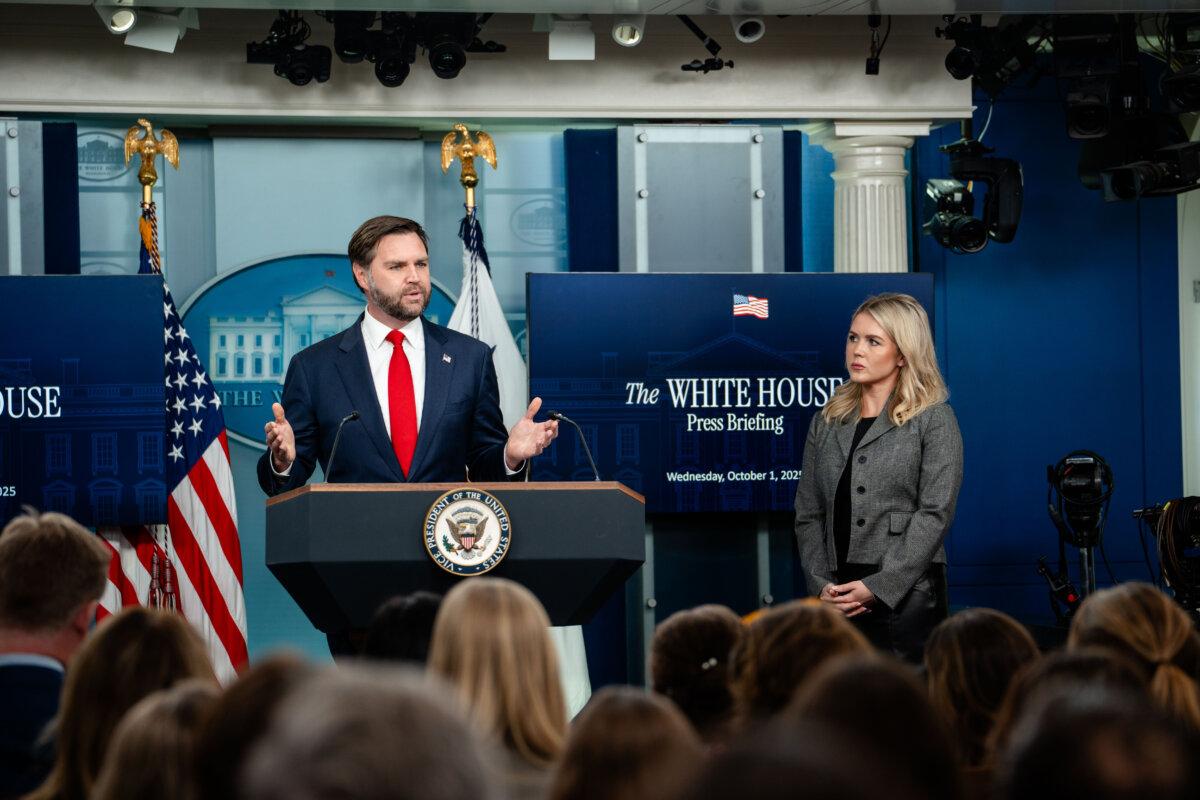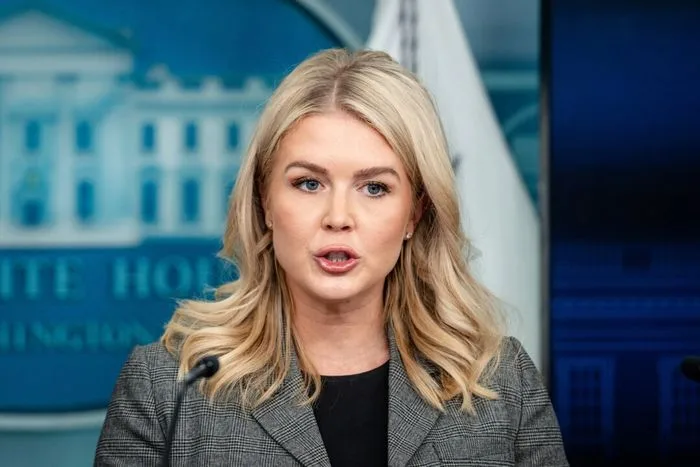By Jack Phillips
White House press secretary Karoline Leavitt said on Oct. 1 that federal layoffs will occur in the near future amid a government shutdown, as Vice President JD Vance confirmed that the administration will have to carry out layoffs.
“Expect more announcements,” she said, noting that the layoffs could come in “two days, imminent, or very soon.”
Later, Leavitt said that reductions-in-force, or RIFs, “are unfortunately going to have to happen very soon.”
She placed the blame on Democrats, saying that “the Democrats put us in this position” by rejecting a Republican-backed measure to fund the government.
Starting on Oct. 1, federal agencies have ordered hundreds of thousands of federal employees not to work, deeming them not essential to protecting people and property.
The current stopgap bill expired on Sept. 30. Republicans and Democrats have not reached an agreement on an extension, meaning that vast swaths of the government lack funds to continue their operations.
Republicans hold a 53–47 Senate majority, but they need the support of at least seven Democrats to meet the chamber’s 60-vote threshold for spending bills, assuming that all Republicans vote the same way.
At issue on the government funding front is $1.7 trillion for agency operations, which amounts to roughly one-quarter of the government’s total $7 trillion budget. Much of the remainder goes to health and retirement programs and interest payments on the growing $37.5 trillion debt.
On Sept. 30, White House Office of Management and Budget Director Russell Vought confirmed in an interview that the Trump administration is viewing the shutdown as an opportunity to reduce the federal workforce. Also, President Donald Trump this week told reporters that the shutdown can lead to positive outcomes for Republicans.
House Speaker Mike Johnson (R-La.) echoed those comments on Oct. 1 by telling a local Louisiana media outlet that the government shutdown “ultimately could be a benefit” to the American public because it could be used to shrink the size of the federal government.
“It does give an opportunity to the power in charge, the president in charge, to make unilateral decisions that don’t need a vote of Congress about which programs in the government are essential and which are not,” Johnson said.
During remarks on Oct. 1 in the White House alongside Leavitt, Vance said that the administration is “not targeting federal agencies based on politics” and instead will be “targeting the peoples’ government so that it’s as much as possible of the essential services can continue to function.”

“We’re going to have to lay people off … that is the reality of the government shutdown,” Vance said.
Also in the press event, he said he’s not sure how long the shutdown will last but said that it is likely not “going to be that long” because several moderate Democrats “are cracking a little bit” and “understand the fundamental illogic of this.”
Democrats say that any spending bill must also make permanent Affordable Care Act subsidies, which are set to expire at the end of the year.
“Our guarantee is to the American people that we’re going to fight as hard as we can for their health care, plain and simple,” Democratic Leader Chuck Schumer (D-NY) said on Sept. 30.
Reuters contributed to this report.





